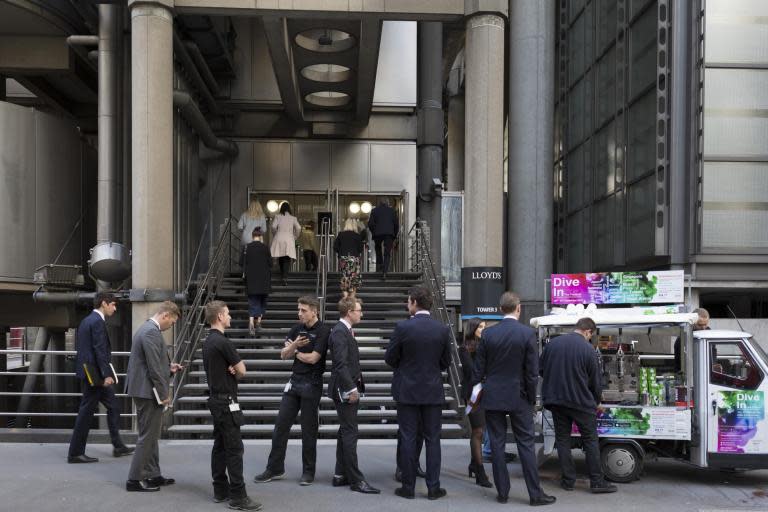The Reader: Thankfully, the lads’ culture at Lloyd’s market is no more
As a veteran of the Lloyd’s market I find some of the recent reports alleging a current culture of harassment and abuse [Laddish Lloyd’s must ensure it isn’t sunk by sexism”, March 22] as absolutely not the market I know. Standards of behaviour are — and have to be —higher than they once were.
Everyone is acutely aware of not only their personal fiduciary responsibilities but also of the necessity of adherence to compliance and regulatory oversight. Anyone acting outside of these professional norms will stand out and should be subject to disciplinary action, including dismissal or criminal proceedings if that is required.
There can be no question that during the Eighties and Nineties there was an ugly drinking and “macho” lads’ culture but I would suggest that is long since gone.
At most, for a few, very few brokers, the odd egotistically inflated idiot will exist, but thankfully there aren’t many.
David Doe
EDITOR'S REPLY
Dear David
You’re right that tarring every man who works in the Lloyd’s market with the same brush is both absurd and unfair.
But the recent claims of harassment at Lloyd’s do need careful scrutiny in a City culture which isn’t exactly a standard bearer for the #MeToo era. We can’t just dismiss the complaints of almost 20 women who’ve put up with unacceptable behaviour for the sake of their careers, and even now are only willing to speak under the cloak of anonymity for the same reason.
Lloyd’s focused on diversity under previous chief executive Inga Beale but sadly it’s the boozy brokers who work there — even if they are a minority — who risk undoing her work.
If anything, we should hold Lloyd’s to higher standards because it has more ground to make up; it didn’t even allow women into its underwriting room until 1973, more than 50 years after they got the vote. That’s why Beale’s replacement John Neal needs to get some women on his nominations and governance boards as a matter of urgency. The tone needs to be set from the top.
Russell Lynch, Deputy City Editor
Selling land won’t solve NHS crisis
I DISAGREE with your health editor Ross Lydall’s suggestion that the answer to the growing pressure on hospitals such as Whipps Cross is for NHS trusts to sell their land as a freehold [ “Whipps Cross Hospital plan not fit for purpose”, March 22].
Population growth in east London is forecast to expand hugely: Tower Hamlets, for example, has the fastest- growing population in the UK, and bed occupancy at NHS trusts such as Barts Health is often running at around 100 per cent capacity.
The recent Long Term Plan for the NHS recognises that it can’t be assumed that alternatives to hospital care, such as increased community and primary care services, will reduce the need for hospital beds. Currently, these services are too understaffed and poorly resourced.
Other alternatives haven’t been given sufficient consideration: some of the pressure on acute beds could be relieved by more step-down care (cost-effective “convalescent” care provided close to acute services).
Jan Savage
Blair points way to Brexit solution
Tony Blair has given the clearest-sighted summary of the way forward [“Stop seeking the Brexit Holy Grail”, March 22]. A softer Brexit of staying at least in the customs union should have a good chance of a cross-party majority. It is up to the Prime Minister to allow Parliament to make a choice.
Nick Waldenmaier

 Yahoo News
Yahoo News 

